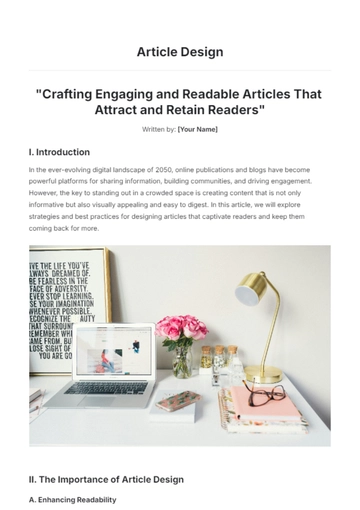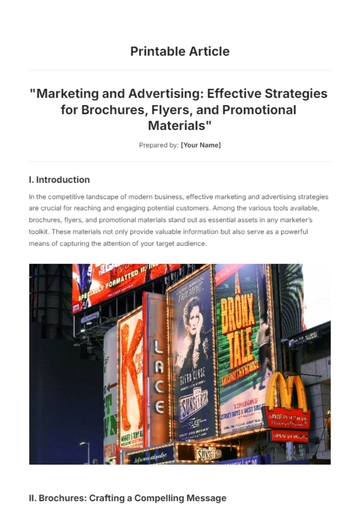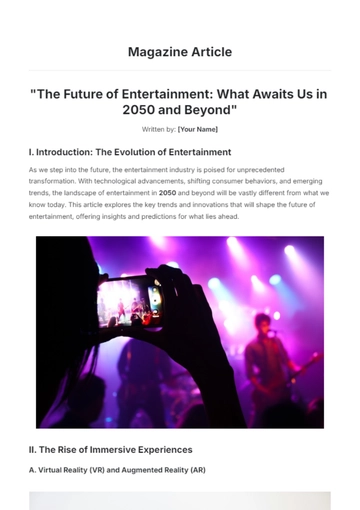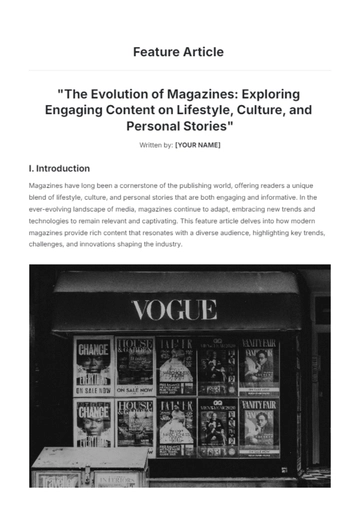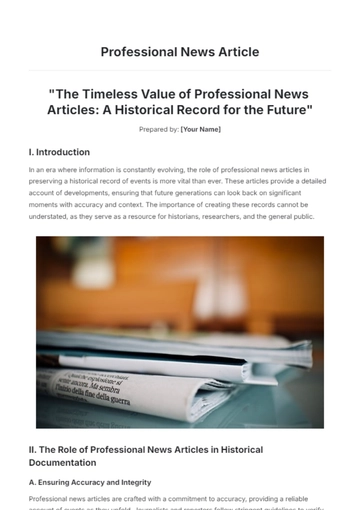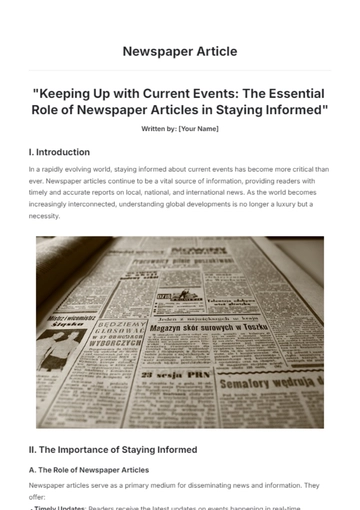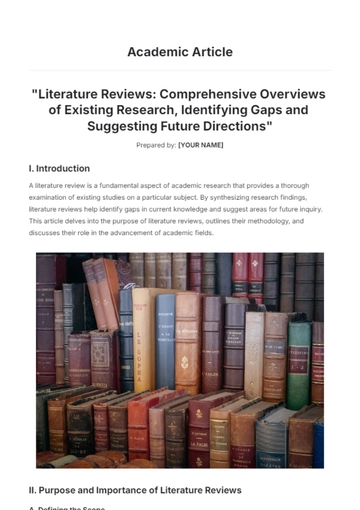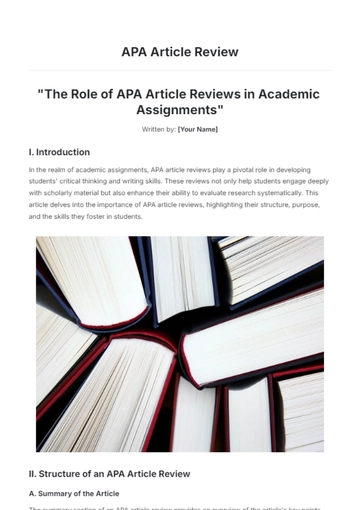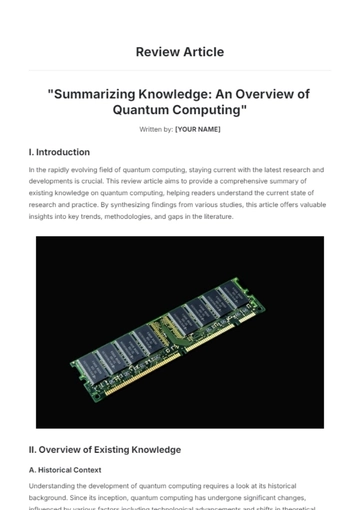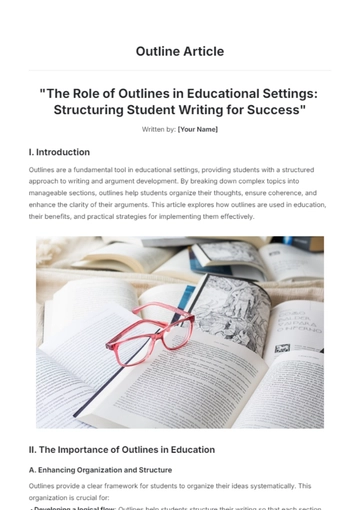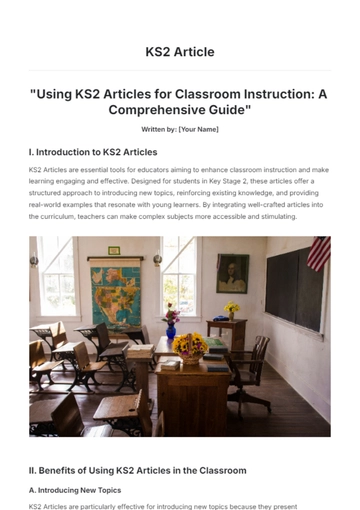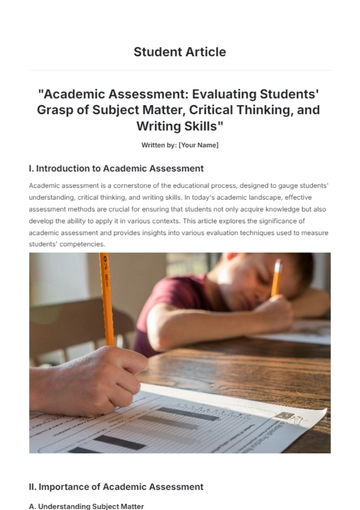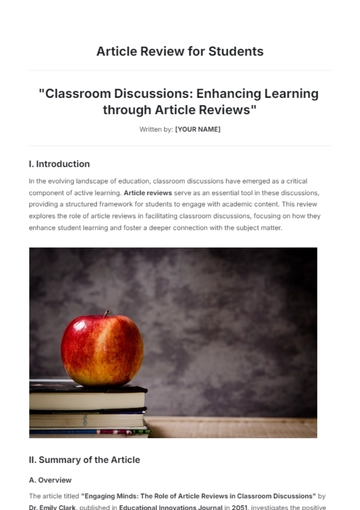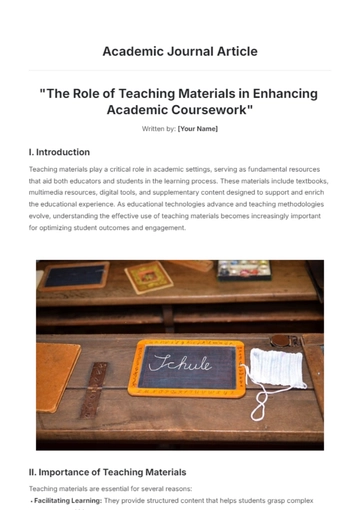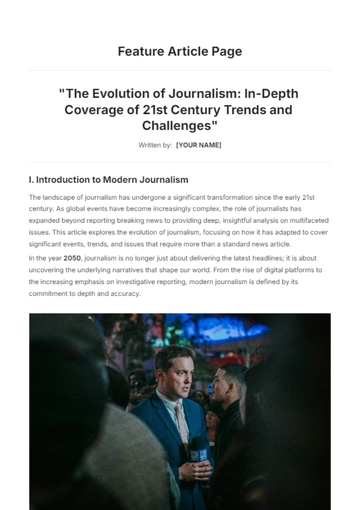Free Journal Opinion Article

Written By: [Your Name]
Understanding the Role of Opinion Articles in Academic Journals
I. Introduction
Opinion articles, also known as perspective pieces or commentaries, are a crucial element of academic journals. Unlike traditional research articles, which focus on presenting empirical data and methodological rigor, opinion articles provide scholars with a platform to articulate their viewpoints, engage in critical evaluations, and address emerging or controversial issues. This article explores the significance of opinion articles, their structural features, and their broader impact on academic and public discourse.
II. Characteristics of Opinion Articles
Opinion articles differ markedly from research articles in their purpose and presentation. While research articles prioritize empirical evidence and methodological detail, opinion pieces are designed to offer informed commentary, often addressing current debates or highlighting gaps in existing research. Key characteristics of opinion articles include:
Conciseness and Accessibility: Opinion articles are typically shorter and more accessible than traditional research papers. They are written in a more conversational tone, aiming to engage a broader audience including non-specialists.
Subjectivity and Insight: These articles present the author's perspective on a specific issue, often grounded in their expertise and professional experience. This subjective approach allows authors to explore nuanced interpretations and propose innovative solutions.
Academic Rigor: Despite their informal tone, opinion articles must adhere to academic standards of rigor. They should be based on credible evidence, reasoned arguments, and sound judgment.
Influence and Relevance: By addressing contemporary issues or emerging trends, opinion articles can influence both public and academic discourse. They often reflect the author's professional standing and can shape research agendas and policy decisions.
III. Structure of an Opinion Article
The structure of an opinion article is designed to communicate the author’s viewpoint while providing supporting arguments and evidence. Although the exact structure can vary, a typical opinion article includes the following elements:
Title: A compelling and succinct title that captures the essence of the argument or perspective being presented.
Abstract: A summary of the article's main points and the author's stance, providing readers with a snapshot of the content.
Introduction: This section sets the stage by contextualizing the issue, presenting the author’s perspective, and outlining the main arguments to be developed.
Main Body: The core of the article, where the author presents and supports their viewpoint. This section is organized into coherent arguments, supported by evidence, examples, and critical analysis.
Conclusion: A summary of the key arguments, restating the main thesis, and suggesting implications for future research, policy, or practice.
IV. Impact on Academic Discourse
Opinion articles significantly impact academic discourse in several ways:
Challenging Paradigms: By presenting alternative viewpoints or critiquing established theories, opinion articles challenge existing paradigms and encourage scholarly debate.
Introducing New Ideas: These articles often bring fresh perspectives to emerging issues or underexplored topics, potentially guiding future research directions.
Fostering Debate: Opinion articles stimulate discussion within the academic community, prompting responses, counterarguments, and further inquiry.
Reaching Broader Audiences: Due to their engaging and accessible nature, opinion articles can reach audiences beyond academia, including policymakers, practitioners, and the general public. This helps bridge the gap between academic research and practical application.
Influencing Policy and Practice: By addressing pressing issues and offering expert opinions, these articles can influence policy decisions and professional practices.
V. Conclusion
In summary, opinion articles are a vital component of academic journals, offering a platform for scholars to share their perspectives, challenge prevailing views, and contribute to dynamic discussions on critical issues. Their ability to engage a broader audience and address contemporary debates underscores their significance in advancing knowledge and informing both academic and public discourse. As academic publishing continues to evolve, the role of opinion articles is likely to become increasingly prominent, highlighting their enduring value in scholarly communication and societal impact.
- 100% Customizable, free editor
- Access 1 Million+ Templates, photo’s & graphics
- Download or share as a template
- Click and replace photos, graphics, text, backgrounds
- Resize, crop, AI write & more
- Access advanced editor
Express your views effectively with Template.net's Journal Opinion Article Template. This editable and customizable template provides a structured format for presenting your opinion on relevant issues. Editable in our AI Editor Tool, it helps you organize your arguments and support them with evidence, ensuring a compelling and professionally formatted opinion article for academic journals.

